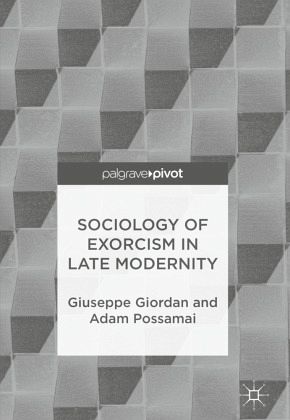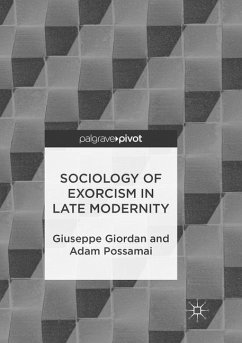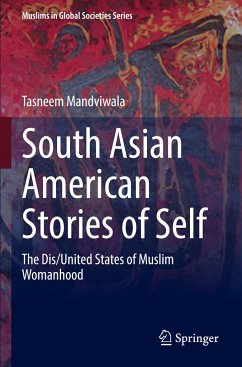
Sociology of Exorcism in Late Modernity
Versandkostenfrei!
Versandfertig in 6-10 Tagen
69,54 €
inkl. MwSt.
Weitere Ausgaben:

PAYBACK Punkte
0 °P sammeln!
This book provides a sociological understanding of the phenomenon of exorcism and an analysis of the reasons for its contemporary re-emergence and impact on various communities. It argues that exorcism has become a religious commodity with the potential to strengthen a religion's attraction to adherents, whilst also ensuring its hold. It shows that due to intense competition between religious groups in our multi-faith societies, religious groups are now competing for authority over the supernatural by 'branding' their particular type of exorcism ritual in order to validate the strength of thei...
This book provides a sociological understanding of the phenomenon of exorcism and an analysis of the reasons for its contemporary re-emergence and impact on various communities. It argues that exorcism has become a religious commodity with the potential to strengthen a religion's attraction to adherents, whilst also ensuring its hold. It shows that due to intense competition between religious groups in our multi-faith societies, religious groups are now competing for authority over the supernatural by 'branding' their particular type of exorcism ritual in order to validate the strength of their own belief system.
Sociology of Exorcism in Late Modernity features a detailed case-study of a Catholic exorcist in the south of Europe who dealt with more than 1,000 cases during a decade of work.
Sociology of Exorcism in Late Modernity features a detailed case-study of a Catholic exorcist in the south of Europe who dealt with more than 1,000 cases during a decade of work.












